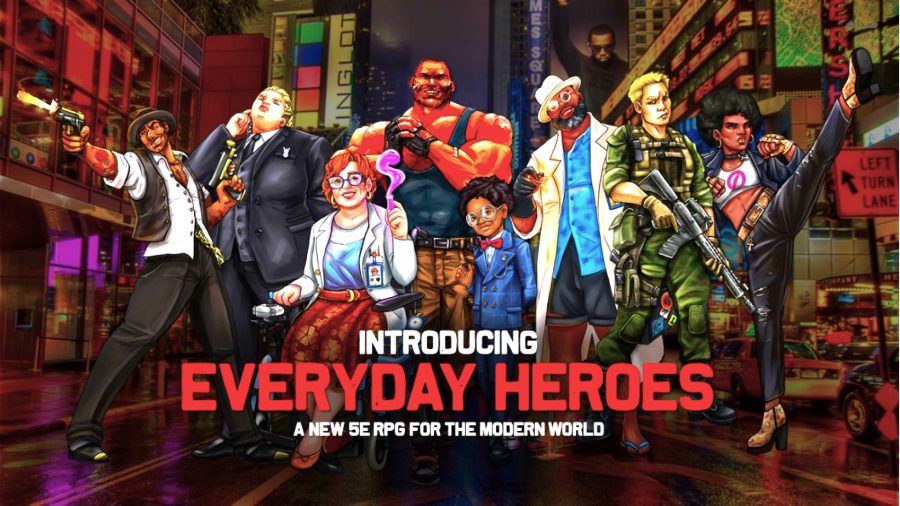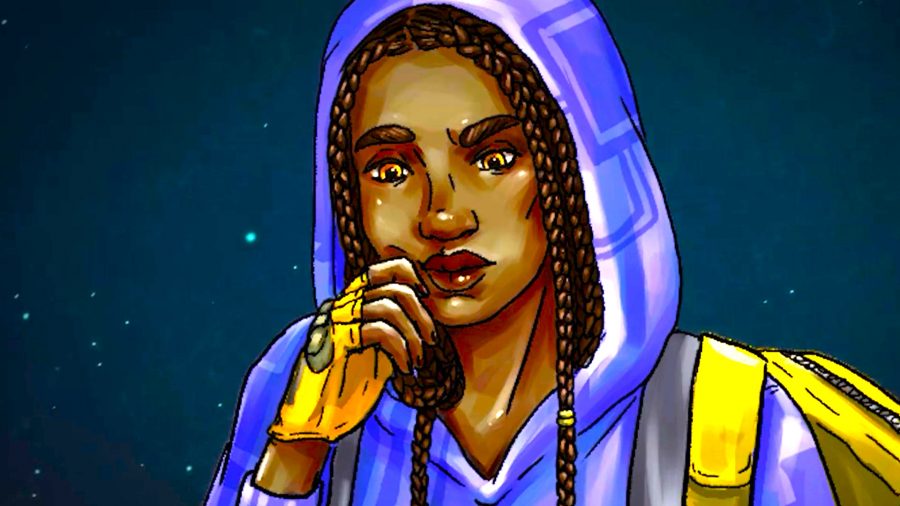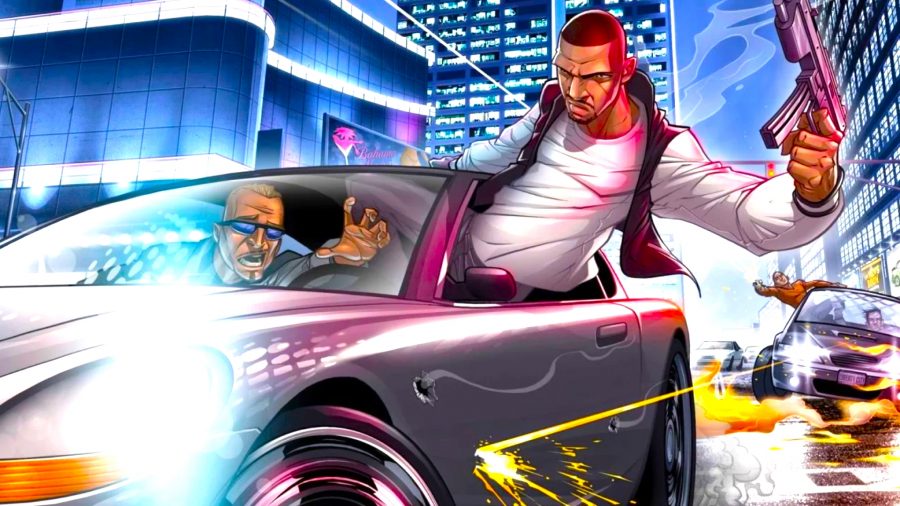‘Have you ever sat in a movie theatre and found yourself yelling at the screen?’ This is the question posed by Evil Genius Games, the tabletop RPG publisher behind Everyday Heroes. The debut game from Evil Genius, Everyday Heroes is a modern-day, real-world TTRPG that uses D&D 5E rules to insert you into your favourite movies as well as more familiar settings.
The Kickstarter officially launched on Tuesday, May 17, and it includes adventure supplements for films like Rambo, Pacific Rim, and The Crow, along with a d20-Modern-inspired core rulebook. The game isn’t simply inspired by d20 Modern; some of the game’s original creators and other D&D veterans also helped put the project together (including Jeff Grubb of Spelljammer fame). Leading the Evil Genius charge, however, is Dave Scott, a Sacramento native who has ‘marketing executive’, ‘CEO’, and ‘self-proclaimed geek’ in his list of official titles.
As a black business owner in the world of tabletop RPGs, it seems Scott is part of a very small club. Ahead of the Everyday Heroes Kickstarter campaign (which already raised over $60,000 / £50,000 in just a few hours), we chatted with Scott about his experiences in the TTRPG space.
WG: How and why did you first get into tabletop RPGs?
DS: It started when I was around 11 years old. I went to sleepaway camp, and I walked into one of the cabins, and they were playing this crazy game called Dungeons and Dragons. And they were fighting Hippogriffs and, you know, dragons and all sorts of other amazing creatures. And I just fell in love at that point in time. I later found out that module was called Return to White Plume Mountain, which to this day is still my favourite module of all time.
Building character: These are the best DnD character builds
You mentioned you are one of the only black business owners in the tabletop RPG publishing industry? Is that correct?
Interestingly enough, BoardGameGeek did the black history month post, and there were four of us featured. Most of them were game designers, and I’m not exactly sure whether or not they own a publishing company, but if they do, good for them – but at the very least, I could probably say that I’m one of a handful of black-owned game publishing companies.

How does that make you feel, being one of a handful, rather than a larger group?
That is really sort of par for the course. I started gaming 30 years ago, and gaming when I was growing up was all white males. Throughout my career, I don’t think I ever had a gaming group that actually had a female in it, let alone another person of colour.
When you actually took a look at the material back in the day, the manuals were all, you know, white males, or scantily clad females, who were wearing chainmail that didn’t seem like it really served as chainmail – and that was it, that’s all I knew.
Consciously and subconsciously, it’s interesting what that does for you. Because as I started to create characters, I don’t think I ever created a black D&D character to play, because I don’t think it was part of my field of vision when I was playing the game.
When stars align: Here’s a guide to D&D alignments
Not only that, but during the time that I played Dungeons and Dragons, which is more like the ’80s and ’90s, it was very much an underground movement – meaning that you didn’t talk about it at the dinner table. You had your secret group of friends, and at the end of school, you were whisked away to one person’s house. And that’s when you’d play until your mom told you to come home for dinner.
It was never anything my mother understood or my parents understood. It was very much counterculture to black culture. Black culture tends to lean towards music and sports – pretending you’re an elf and rolling die was a completely strange phenomenon to the black community, which created a little bit of a rift for me, or a disconnect with my community. Because it was a hobby that I so dearly loved. There’s something that we talk a little bit about in the black community, the idea that the person you are in private is very, very different from the person you are in public. And so you basically play these personas, right?
And it’s not to say, like, when I was at home, I was wearing African garb and celebrating Kwanzaa – that is not what black culture is defined as for me. But what it means, though, is, is that D&D was a part of me I never talked about.

How do you find things now – how much has changed?
I’ve been going to Gen Con since it was in Wisconsin, Milwaukee – my badge number is like 400. The community was extremely Midwestern, it was extremely white. I remember sitting down at tables to play games, and wondering whether or not I would be accepted. Now, god bless the gaming community, which is just generally decent human beings – almost always I did feel accepted. But I still wondered, right?
And then there’s this thing that we do as African Americans, which we laugh about in our inner circles, which is the idea of whenever you’re in a room, you count how many black people are in there. Early in my gaming career, it was very easy to count.
Across the board: These are the best D&D board games
And what was interesting was I had dinner with Peter Adkison, who’s the CEO of Gen Con, and we were talking exactly about this. And he, as well as I, did notice a sizable shift in the look of the constituents that went to Gen Con.
Today, when I walk the floor at Gen Con, it is a much better representation of the people and the cultures that represent the United States than ever before. And that is really, from my perspective, gosh, and just an absolutely beautiful experience for me. And so I think it’s changed significantly.

Are there any other black people in the tabletop RPG space you’d want to shout out?
One of the things that I was really conscious of, as I started to build this business, is who else in the industry we could support and uplift. And what I’m pleasantly surprised by is that there are a number of amazing, black cosplayers that are really coming up. Black cosplay didn’t exist when I was a kid – whenever I dressed up as Green Lantern, everyone thought I was crazy. And so I love seeing that happen.
But then also, we’re starting to run into some really, really amazing black influencers in the space. I want to shout out to Gabe Hicks, who is a wonderful writer and designer working for Roll20 right now. He’s wonderful, and he’s one of our [Evil Genius’] partners, and very supportive of what we’re doing. I also really want to be supportive of B. Dave Walters, who really has paved the way and really has some things to say.
If there are more out there, please reach out to us, because I’d love to figure out a way we can support each other. As we start to build out our team, and we start to actually create game runners for all these big billion-dollar franchises that we’re supporting, I would love to bring on a very representative employee group and have some of these people really shine under big properties like the Pacific Rim and Highlander and things like that. So I’m excited about what we can do once we actually get this business up and running via the Kickstarter, which launches on May 17.
Source: Wargamer




